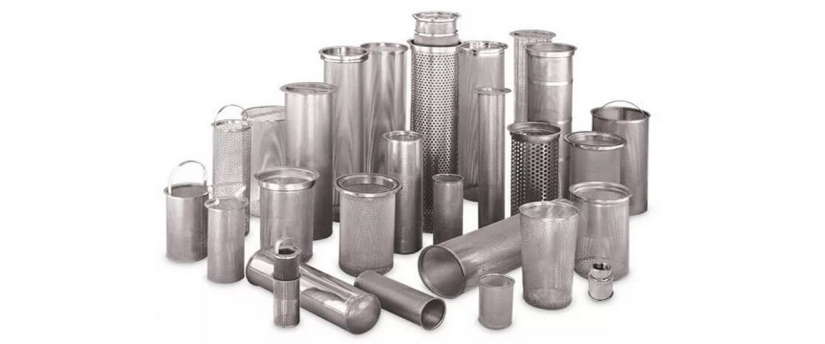Sintered Filter Element Manufacturers & Suppliers in Vadodara, Gujarat, India
Sintered Metal Filters | Stainless Steel Sintered Metal Filter | Sintered Bronze Filter | SS Sintered Filter Cartridge


HS Engineers: Your Trusted Source for High-Quality Sintered Filter Elements
At HS Engineers, we are leading manufacturers and suppliers of sintered filter elements in Vadodara, Gujarat, India. Our sintered powder filter cartridges are renowned for their exceptional filtration performance in environments with high operating temperatures and corrosion. We utilize cold isostatic pressing to create a highly porous and stable material, resulting in simple, modular filters that effectively remove unwanted particles and chemicals from water.
What is a Sintered Filter Element?
A sintered filter element is a type of filter manufactured by sintering together metal particles to form a porous structure. These elements are commonly made from stainless steel, bronze, nickel, titanium, or other metals and are widely used in filtration applications that demand high temperature, high pressure, or harsh chemical environments.
Applications of Sintered Filter Elements:
Sintered filter elements find extensive use in various industrial applications, including:
- Chemical Industries: Filtration of acids, alkalis, and other corrosive liquids; purification of gases; removal of impurities from process streams.
- Food and Beverage Industries: Filtration and clarification of beer, wine, fruit juice; filtration of cooking oils and other food products.
- Pharmaceutical Industries: Filtration and purification of liquids and gases used in drug production; removal of impurities from process streams.
- Automotive Industries: Filtration of engine oil, transmission fluid, and other automotive fluids; filtration of air and fuel for internal combustion engines.
Types of Sintered Filter Elements
Sintered Bronze Filter
- Material: Bronze powder
- Characteristics: Excellent filtration properties, high level of filtration efficiency
- Applications: Medical, pharmaceutical, and food and beverage industries
Sintered Metal Filter
- Material: Various metal powders
- Characteristics: High strength-to-weight ratio, resistance to high temperature and pressure
- Applications: Aerospace and automotive industries
Sintered Stainless Steel Filter
- Material: Stainless steel powder
- Characteristics: Excellent corrosion resistance, suitable for harsh or corrosive environments
- Applications: Oil and gas, chemical processing, and water treatment industries
Benefits of HS Engineers' Sintered Filter Elements
- Range of options to meet diverse filtration needs
- Effective and efficient filtration process
- Improved product quality
- Reduced downtime
HS Engineers is a leading manufacturer and supplier of sintered filter elements, providing high-quality filtration solutions for various industrial applications. Their expertise and commitment to innovation ensure they deliver reliable and cost-effective filtration products.
FAQ
Sintered metal media are available in various grades, including 0.1, 0.2, 0.5, 1, 2, 5, 10, 20, 40, and 100. For media grades 0.2 to 20, the filtration rating in liquid ranges from 1.4 to 35 µm absolute. In gas filtration, the rating spans from 0.1 to 100 µm absolute.
Sintered filters find applications in various industries, including automotive, chemical processing, pharmaceuticals, and water treatment. They are commonly used for fluid clarification, air and gas filtration, and separation of contaminants.
Sintered filters can be made from various materials such as stainless steel, bronze, nickel, and titanium. The choice of material depends on the specific requirements of the filtration application, including chemical compatibility and durability.
Yes, sintered filters can be customized based on the requirements of specific applications. This includes adjusting the pore size, dimensions, and material composition to meet the filtration needs of different industries.
